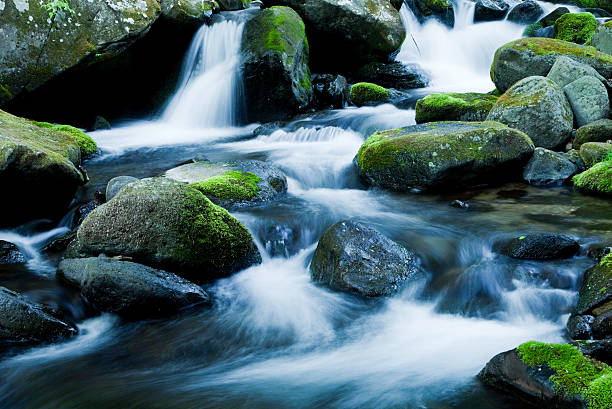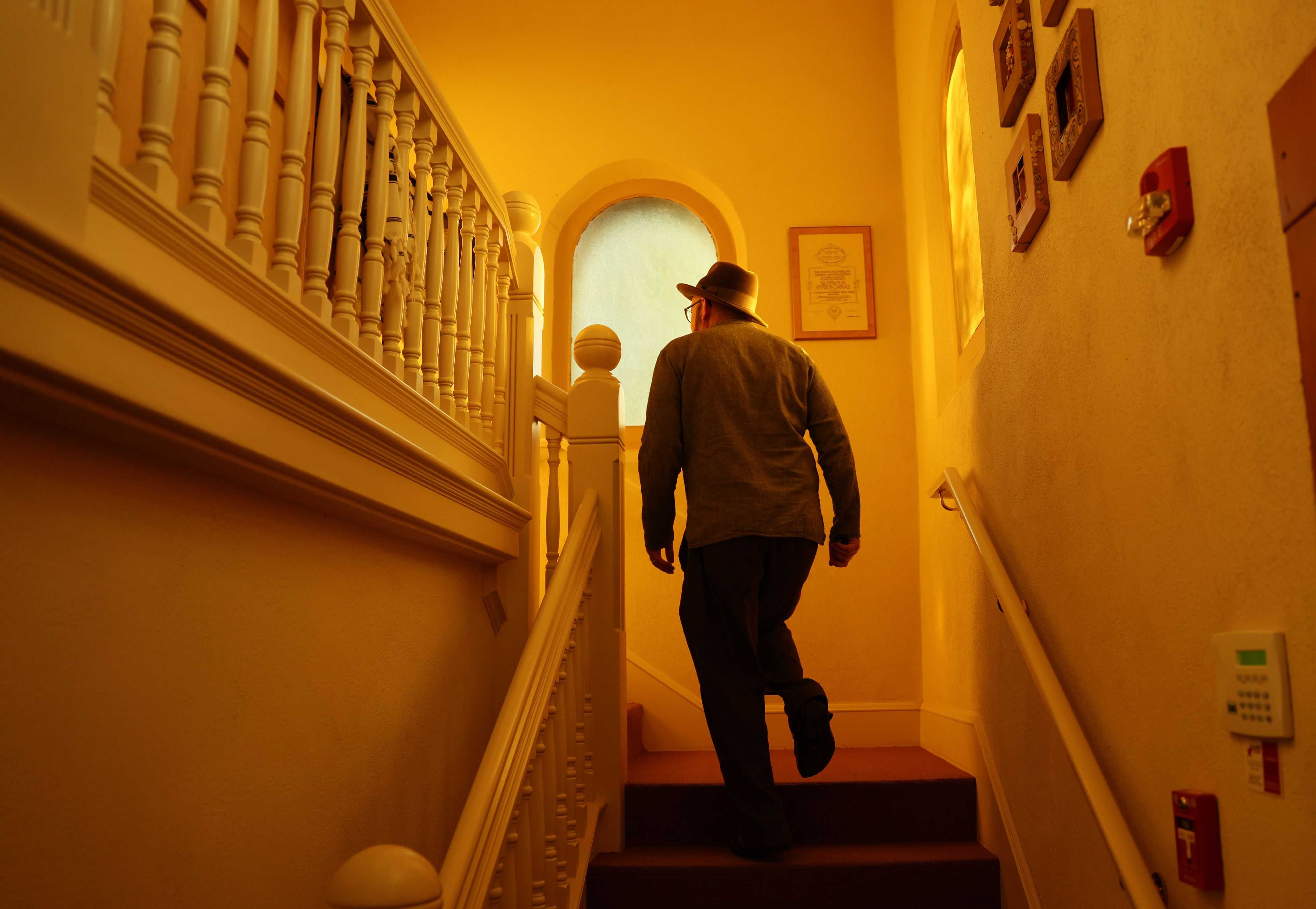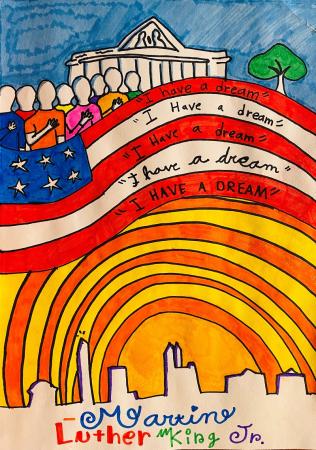I am old enough to have lived through some contentious times. In my boyhood, growing up ten minutes outside Washington, DC, I witnessed major protests over civil rights and Viet Nam. As a progressive student on a mostly conservative college campus in the early Reagan years, I experienced hard-fought battles over militarism, feminism and LGBTQ rights. And throughout the four decades of my active rabbinate, I watched our country’s longstanding divides widen into chasms, fracturing families and cleaving communities.
Yet even at the height of such strife, people across the religious and political spectrum overwhelmingly agreed that empathy is a virtue. Despite our deep differences, Americans recognized concern for our fellow citizens as a nonpartisan common cause. Democrats and Republicans, liberals and conservatives, Jews and Christians and Muslims, Hindus, Buddhists, and atheists alike held (in theory, if not always in practice) that we should love our neighbors as our selves. Thus George H.W. Bush made the case for a kinder, gentler nation while Barack Obama implored us to care for others, even if they don't look like you or talk like you or share your philosophy.
Alas, in a telltale sign of how profoundly cruel and crazy our culture has become, even that consensus has crumbled. Empathy is now a fiercely divisive subject, openly derided by the Christian nationalist preachers and politicians who wield enormous power in today’s America. As Jews across the nation gather tonight for Kol Nidre, this should concern us gravely.
**********
My first experience with the anti-empathy crusade came at the end of 2024, when I participated in an interfaith panel discussion for mental health providers. One by one, the panelists shared our traditions’ perspectives on mental health. I listened as my Catholic, Mormon, Muslim, Buddhist and Presbyterian colleagues addressed the ways that faith can bolster compassionate community. We all smiled, nodding in agreement—until the panel’s self-identified non-denominational evangelical indignantly denounced this sentiment as venomous, ungodly nonsense.
His rant momentarily chilled the room, but the moderator quickly tacked to the next question and afterwards, I didn’t dwell on the matter much. After nearly forty years as a rabbi, I’d seen my share of outbursts, so I took it as a one-off episode, a lone crank going off the rails. Uncomfortable but hardly indicative of a larger concern.
That all changed just a month later, after Bishop Marian Budde’s sermon at the National Cathedral’s inaugural prayer service. Bishop Budde offered an eloquent call for unity, ending with a heartfelt plea to the new president to have mercy upon the most vulnerable among us, especially queer children and undocumented immigrants. She concluded with the classic biblical teaching on empathy, noting: Our God teaches us that we are to be merciful to the stranger for we were all once strangers in this land.
The ensuing Christian Nationalist response to Bishop Budde’s talk uncannily echoed the words of my feverish interfaith panelist. Their avalanche of condemnation focused on what they called “the sin of empathy,” which they angrily derided as a false gospel enabling a weak, feminine culture of coddling. As an astute anonymous internet commentator observed: Budde became a perfect lightning rod because she was a woman in a leadership position in her church, carrying the mainstream Protestant message of kindness that the fundamentalist hard right furiously sought to displace.
The critique did not end with Bishop Budde. In the weeks following her homily, Elon Musk declared empathy “the fundamental weakness of Western civilization” and an NPR piece featuring a group of high-profile Christian conservatives sounded similar sentiments. I quote: “Empathy is dangerous. Empathy is toxic. Empathy will align you with hell.” I realized that we are in the throes of a full-blown anti-empathy movement soon thereafter, upon reading a review of two popular new books: Joe Rigney’s The Sin of Empathy and Allie Beth Stuckey’s Toxic Empathy. It’s no coincidence that both were published by an ultra-conservative press founded by Doug Wilson, the Moscow, Idaho Christian Nationalist preacher whose prominent disciples include Pete Hegseth and Tucker Carlson. As the reviewer, Mona Mona notes: By creating a permission structure that enables followers to dismiss the concerns of certain groups and to dehumanize those perceived as “others,” such as LGBT individuals, immigrants, people of color, and women, this playbook lays the groundwork for an ethno-fascist state.
In other words, the radical right has declared war on empathy as part of its broader agenda to define America as a fundamentalist Christian nation.
**********
So how can we understand and respond to this assault? We might begin by reiterating that it is steeped in misogyny. The biblical Hebrew word for mercy, compassion, and empathy is rachamim, derived from the root rechem, meaning “womb.” The classically feminine virtues that Christian nationalists derogate with such macho swagger are rooted in the love of a mother for her child, a relationship so foundational it is our tradition’s model for the Holy One’s love of humankind. The anti-empaths’ sexist ideology poisons their humanity—an important reminder that to be anti-woman is ultimately, always, to be anti-humanist. As Rev. Dana Colley Costello notes: Banishing empathy helps to harden the heart when migrant children are separated from their parents, when protesters and so-called “illegals” with suspect tattoos are snatched off our streets in broad daylight, when funding is slashed for food banks, healthcare, scientific research, and when attacks and erasure of diversity, equity, and inclusion continue under the guise of meritocracy when it’s really disguised white supremacy.
**********
To stand against empathy is to oppress women and diminish humanity. It is also to spit, as it were, in the face of God. During these Days of Awe, we petition the Holy One as El Rachum v’Chanun—Source of Endless Mercy. When we repeatedly plea for forgiveness on Yom Kippur, we ask God to leave the heavenly throne of judgment and occupy, instead, the seat of compassion and lovingkindness. Indeed, in a poignant metaphor humanizing the Holy One, our Sages dare to imagine that even God offers up prayers. Which, of course, leads them to the obvious question: What words, exactly, might the Creator of the Universe pray? To which the Talmud boldly answers: יהיו לרצון—May it be My will that My quality of compassion prevails over My attribute of strict justice. (BT Brachot 7a).
The Holy One prays, as it were, for empathy. Compassion is the essence of divinity.
Or, to put it bluntly, in the absence of empathy, there is no God.
**********
Nor are there any true Jews, for our tradition defines us as Rachamim b’nai Rachamim—Compassionate Children of the Compassionate One. As Bishop Budde recognized, our foundational credo is: Do not oppress the stranger, for you know the heart of the stranger, having yourselves been strangers in the Land of Egypt. Judaism is, first and foremost, a path of empathy.
Which brings me to the Yiddish version of rachamim, or motherly love: rachmones. In her short essay, “Embracing The Rachmones Challenge” actor Dani Klein writes: For those for whom Yiddish is not a second language, or even a third or fourth, rachmones is defined by four words: mercy, compassion, forgiveness and empathy. That’s what Yom Kippur calls us to summon tonight and throughout the weeks and months to come, even though—or better, precisely because—it has become so counter-cultural in today’s America. Now, more than ever, we need mercy, compassion, forgiveness, and empathy—for our loved ones, our friends and neighbors, our Jewish community, our battered yet still beautiful world. And no less surely, for ourselves. The past year has been brutal and we all, to some extent, carry its trauma in our bodies and souls. We do not know what 5786 will bring but right now it feels scary and uncertain. So have rachmones—listen with lovingkindness—to your heart, and to the hearts of those around you. As Rabbi Gunter Hirschberg, who was born in Berlin and fled the Nazi regime taught his students:
Kinderlech, az ihr hobt kein rachmones, for wos seid ihr Yiden?—Children, if you don’t have compassion, what makes you Jews?
**********
Which brings us to the truly hard part of this sermon: If we want our call for empathy to ring true, we must search our hearts and summon empathy even for those who openly express contempt for it; we must find a measure of rachmones even for those who show no rachmones in their own actions. To be clear: this is decidedly not to say we must agree with the anti-empathy movement or sit idly by while they crusade for cruelty over compassion. Just the opposite: I believe we have a binding Jewish obligation to oppose misanthropic Christian nationalist ideology and its xenophobic, racist, sexist, homophobic and antisemitic agenda. But for our resistance to be authentic and effective, it must be rooted and directed in lovingkindness. As Dr. King reminded us in both word and deed: Darkness cannot drive out darkness—only light can do that. Hate cannot drive out hate—only love can do that.
Indeed, this is why the bigots expend so much energy opposing empathy—because they know it is our superpower, the one and only way to change hearts and minds and heal our broken world. Our tradition teaches this through a tale of two donkeys that turn out to be one and the same. It’s a lesson that, like much Jewish wisdom, begins in Torah and concludes in Talmud. Here goes:
Biblical law twice demands that we help relieve a collapsed and overburdened animal. The first instance comes from the book of Exodus:
If you witness your enemy’s donkey fallen under its load, and you are tempted to refrain from helping him, surely then you must help him raise it. (Exodus 23:5)
The second passage occurs much later, in Deuteronomy, where we read:
Do not witness your kinsman’s donkey or ox fallen on the road and then make yourself scarce—rather, you should go and raise it up with him. (Deuteronomy 22:4)
Two commandments saying much the same thing. Which bring us to the talmudic Rabbis, who disagreed amongst themselves on almost everything but shared the foundational assumption that as the word of God, Torah is literarily perfect and therefore contains no redundancies or pointless repetitions. Thus they ask, why do we need the second donkey verse? If, per the first, we know we are obligated to raise even our enemy’s beast, it goes without saying that we should do the same for a beloved kinsman.
Rabbi Alexandri answers, as our Sages so often do, with a story reinterpreting the biblical narrative. As he tells it:
Two people who despise each other are on a road with their working donkeys. One donkey, exhausted from its load, stops and lies down. The other donkey’s owner stops and thinks. “The law says I should help my enemy release his donkey’s burden.” So, the thinker helps their enemy adjust the donkey’s load.
As they work, they talk, “Let’s loosen here; let’s tighten there.” Together they raise the animal.
Now the enemy thinks, “This person doesn’t hate me. Look how concerned they were when my donkey and I were in distress.”
So they walk, side by side, to the inn, break bread together, and launch a lifelong friendship. (Midrash Tanchuma, Mishpatim 1:2)
Rabbi Alexandri’s parable illustrates the teaching of Avot de Rabbi Natan:
Who is mighty? One who makes an enemy into a friend.
This is the miracle of rachmones, the abiding power of empathy: it humanizes our enemies and thereby opens the opportunity to transform them into allies. Which is not to suggest that such an approach is either easy to implement or guaranteed to yield success on most occasions. This is a sacred but strenuous project that may take generations to bear significant fruit. And it reminds me of the words of Rabbi Israel Salanter, the founder of the Musar movement, who famously confessed: In most of my sermons, I am preaching to myself. That is definitely true for me tonight. Holding compassion for those who wage war upon empathy does not come easily to my soul—in fact, it goes against the natural inclination of every bone in my body. I don’t want to act lovingly toward my enemies. Yet both the wisdom of our tradition and my own life experience testify that this calling is as essential as it is difficult. Yes, this is a time for protest, for peaceful, powerful uprising in the face of cruelty and persecution. If not now, when will we stand for the most vulnerable among us? But we must not let our activism de-humanize both ourselves and our adversaries.
Darkness cannot drive out darkness—only light can do that.
Hate cannot drive out hate—only love can do that.
On this Kol Nidre eve, let us remember that resistance grounded in anger and retribution cannot endure. Only empathy—only rachmones—gives birth to hope.
In that spirit, I leave you with the words of Palestinian-American poet Naomi Shihab Nye, from her poem “Kindness”:
Then it is only kindness that makes sense anymore,
only kindness that ties your shoes
and sends you out into the day to gaze at bread,
only kindness that raises its head
from the crowd of the world to say
It is I you have been looking for,
and then goes with you everywhere
like a shadow or a friend.
Ken y’hi ratzon



